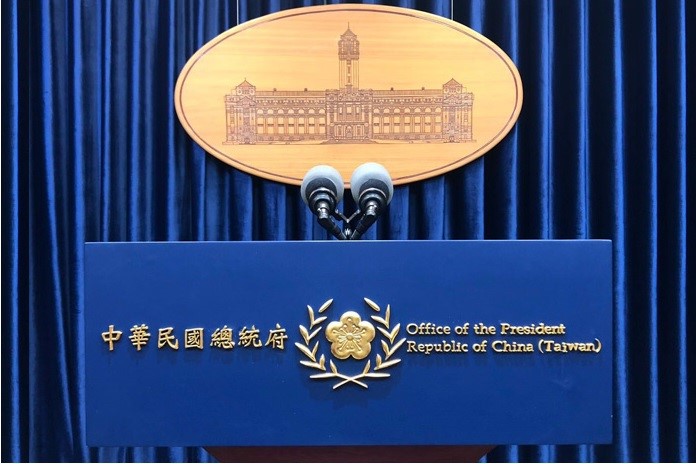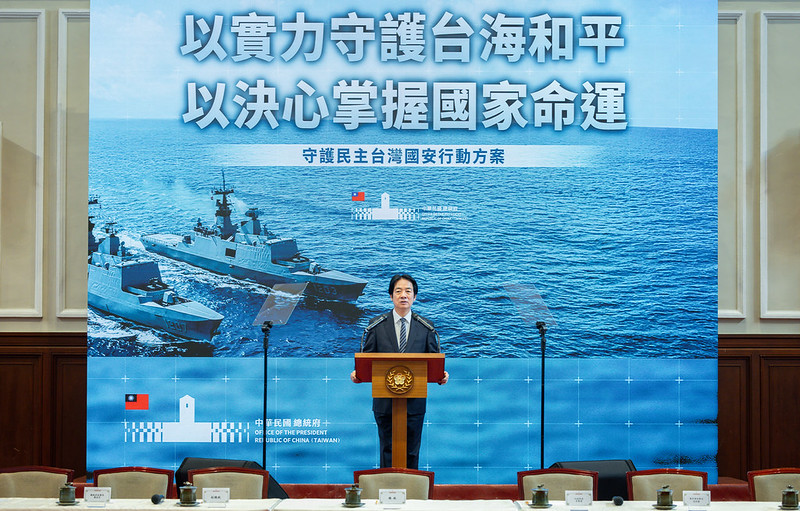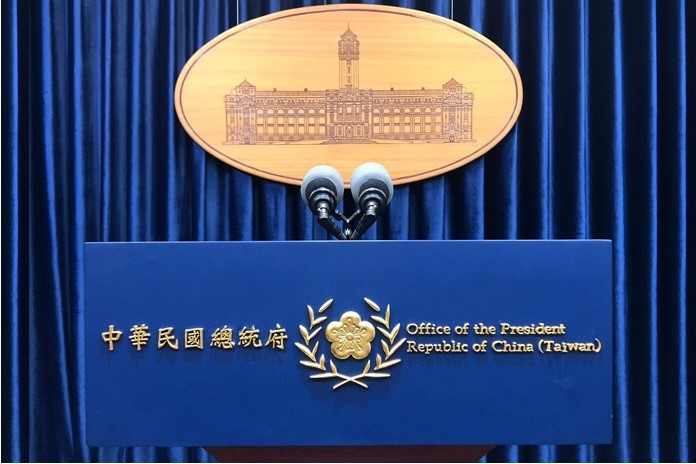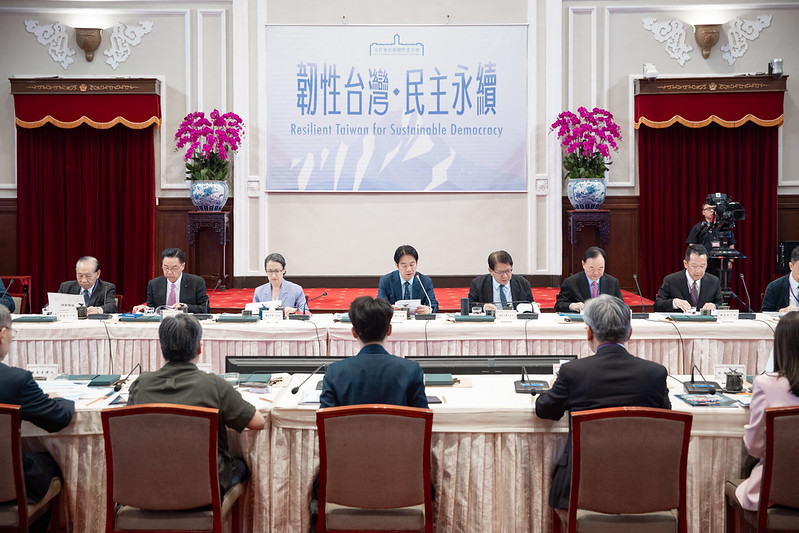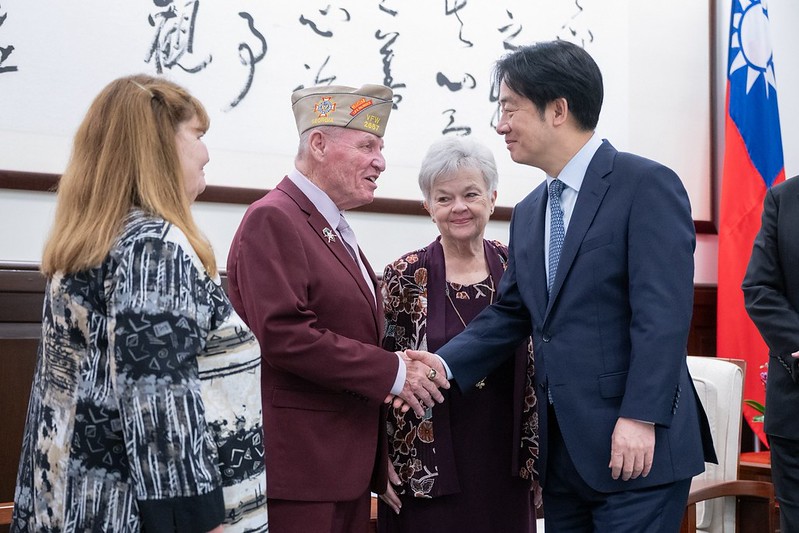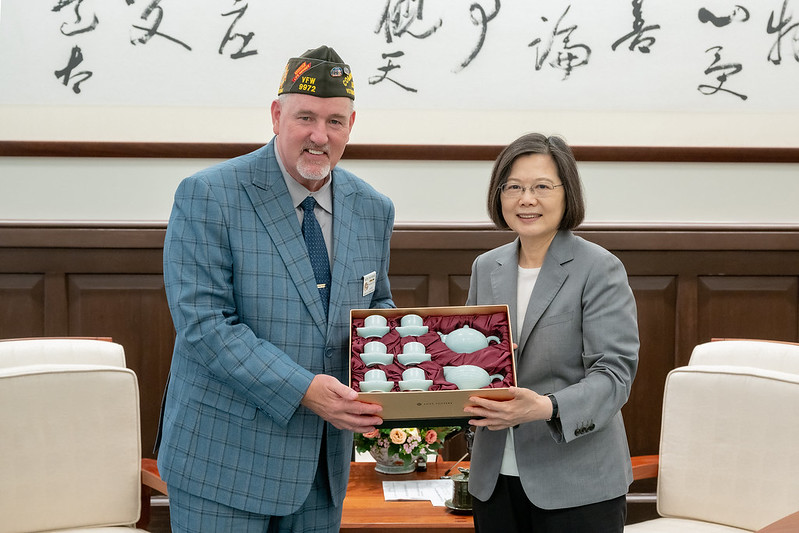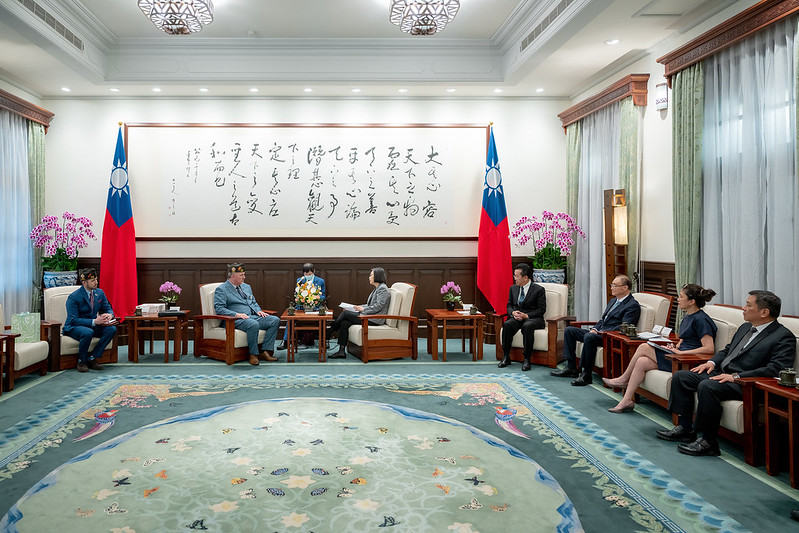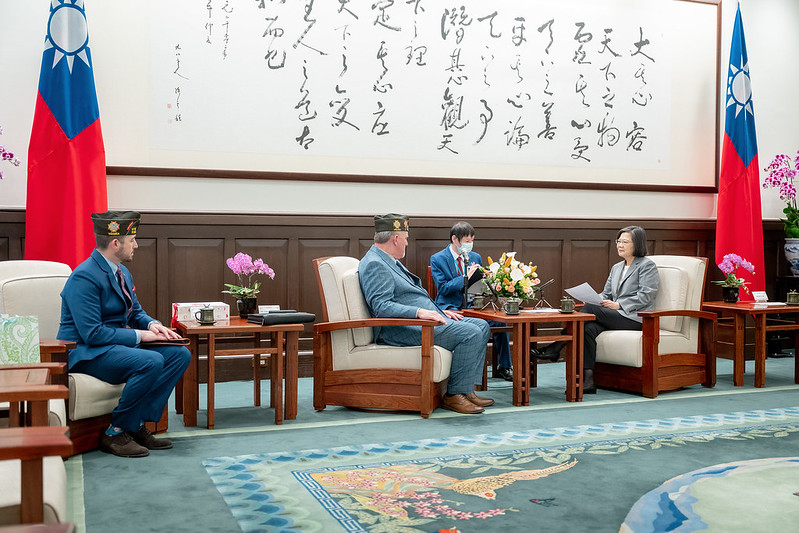News & activities
 News releases
News releases
On the afternoon of May 15, President Tsai Ing-wen met with Timothy Borland, commander-in-chief of the Veterans of Foreign Wars (VFW) of the United States. In remarks, President Tsai said that last year, the Taipei Economic and Cultural Representative Office (TECRO) in the United States established a Veterans Affairs Division, and our Veterans Affairs Council (VAC) has already dispatched permanent staff to Washington, DC. The president also expressed hope that with the Veterans Affairs Division, Taiwan and the US can exchange valuable experience in veteran issues ranging from career counseling to health insurance, and jointly improve veteran welfare and develop deeper and broader exchanges between Taiwan and the US.
A translation of President Tsai's remarks follows:
The VFW of the United States has longstanding, close ties with Taiwan. I received delegations from the VFW for three consecutive years until the onset of the COVID-19 pandemic in 2020. With the pandemic subsiding, I am very happy that Commander-in-Chief Borland and Executive Director Ryan Gallucci are visiting us to work together on Taiwan-US relations. This is also Commander-in-Chief Borland's first trip to Taiwan. So, once again, I welcome you here today.
The VFW and our VAC have a fraternal relationship. Over the years they have jointly promoted Taiwan-US exchanges through a variety of activities. I would like to thank the VFW for its contributions to deepening Taiwan-US relations.
In recent years, Taiwan and the US have continued to bolster cooperation in such areas as national defense and economy and trade. Last year, our TECRO in the United States established a Veterans Affairs Division, and the VAC has already dispatched permanent staff to Washington, DC, resulting in more frequent interactions between TECRO and Commander-in-Chief Borland and Executive Director Gallucci, which we are very pleased to see.
With the Veterans Affairs Division, we look forward to Taiwan and the US exchanging valuable experience in veteran issues ranging from career counseling to health insurance, and to jointly improving veteran welfare and developing deeper and broader exchanges between Taiwan and the US.
Commander-in-Chief Borland then delivered remarks, saying that it is an honor to visit the president in Taiwan, and that this is the first visit of the VFW to Taiwan in three years. As a 28-year Army veteran, a fourth-generation retired Army veteran, and the commander-in-chief of the VFW, Commander-in-Chief Borland voiced his guarantee that they will continue to work close with Taiwan.
Commander-in-Chief Borland expressed his hope for a short video of the president to address the veterans attending the upcoming VFW National Convention in Phoenix, Arizona, so that all of America and all of Taiwan can understand how closely we work and protect our needs.
Commander-in-Chief Borland introduced President Tsai to Executive Director Gallucci, who was recently promoted to that position, adding that since Executive Director Gallucci is fairly young, he has many years of service at the VFW ahead of him, during which time he will continue working with his Taiwanese counterparts in the US. He said that youth is important, and so are our past generations, so we cannot forget the past but we need to move forward.
Commander-in-Chief Borland, born to parents who both served in the military, said that he is honored to be the commander-in-chief of the VFW, adding that he has worked with veterans his entire life and that he will continue taking care of veterans. He said that President Tsai is the second president in his one-year term as commander-in-chief of the VFW that he has met personally, the first being President Biden last year on August 10 when he signed the largest veteran bill in the history of Congress and the last three decades. Commander-in-Chief Borland then said that he will, with honor, tell his grandchildren and great grandchildren about his meeting with President Biden and with President Tsai.
